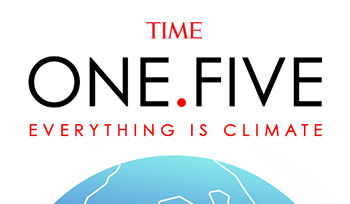 |
Dear readers, The movie Parasite is a lot of things: a tale of a family’s humorous deception, a thriller that will keep you on the edge of your seat and a searing social commentary on the state of our increasingly unequal society. It’s also a climate-change movie. That’s not to say it’s a movie about climate change. Rather, it’s a movie where climate change occurs silently in the background before emerging to reshape lives. I’m writing about Parasite this week in my free weekly newsletter because it recently won four Oscars, including Best Picture. But beyond the notoriety of the Academy Awards, the movie is worth considering in the context of how film, television and literature portray climate change, as that is central to growing the broader public understanding and grappling with the reality. Climate in ParasiteFor brief background, Parasite tells the story of two families—the wealthy Parks and the struggling Kims— living in a South Korea grappling with income inequality, much like the rest of the developed world. The Kims deceive their wealthier counterparts and infiltrate the household, collecting paychecks as tutors and household help. This all goes according to plan until a giant storm hits. Torrential downpour floods a river as the Parks are camping, driving them to return home suddenly while the Kims are strewn about the Parks’ luxurious house as if they live there. The Kims escape in the nick of time, only to discover that their own home has flooded with sewage. They end up spending the night in what appears to be a converted gymnasium filled to the brim with others displaced by storm. There are several climate messages to unpack here. Biblical storms have long served as storytelling devices; in Parasite the downpour is simply a reflection of South Korea’s new climate reality: research has shown the country is experiencing a significant uptick in the severity and frequency of storms. Parasite also shows how the effects of climate change will have disparate impacts on different populations. For the wealthy Park family, the storm is a minor inconvenience. For the poor Kims, it literally destroys their home. This kind of disparity is a reality acknowledged in report after report, study after study. And, yet, what I appreciated most about Parasite’s depiction of climate is that it goes one step further. On the surface, wealth seems to insulate the Park family, but it doesn’t take long for the travails of the Kims to hit the Parks. As the families gather after the storm, the Parks are refreshed, ready to celebrate their son’s birthday. The Kims are tired and frustrated, so much so that in a moment of chaos the Kim family patriarch ....... Did climate change make him do it? Not exactly, but it helped create the conditions for such an ... event. Many in the developed world understand that they aren’t on the frontlines of climate change, that others will feel the impact first and hardest. But, in our interconnected world, Parasite is a good reminder that every flood will ripple. A new cultural climateSo much of the way we understand the world is filtered through media and cultural production. From an early age, we learn fables and simple tales to grapple with the basics of life. Thus far, portrayals of climate change have largely been absent, and what little that exists has been lacking. In the most obvious examples of climate-related fiction—think of, say, The Day After Tomorrow from 2004— climate change is depicted as dystopian and world ending. This is a huge problem. In his [2016 controversial essay] The Great Derangement: Climate Change and the Unthinkable, [Brooklyn-based] writer Amitav Ghosh argues that typical modes of fiction struggle to grapple with the nature of our warming planet, largely because so much of fiction centers around narratives of individuals struggling and triumphing. A richer and more nuanced portrayal of climate change in fiction would improve how we understand the phenomenon, he argues. “The great, irreplaceable potentiality of fiction is that it makes possible the imagining of possibilities,” he writes. “And to imagine other forms of human existence is exactly the challenge that is posed by the climate crisis.” Parasite is not the only work of fiction breaking new ground. Richard Powers’ Pulitzer-winning [ cli-fi novel ] The Overstory intertwines a story of people and the destruction of forests. Jenny Offill's new cli-fi novella Weather follows individuals grappling with the reality of climate change alongside the more anodyne challenges of daily life. These works are a good start, but more is needed. As Ghosh writes, “if there is any one thing that global warming has made perfectly clear is that to think about the world only as it is amounts to a formula for collective suicide.”
—Justin Worland
NOTE: This essay is from Justin Worland's current weekly newsletter. It does not appear in the print edition of TIME magazine yet and probably won't appear there. However, Justin will publish this essay on the TIME website as a stand-alone link not connected to the magazine itself, athough he is a staff writer for TIME. The link will appear soon. Google for it. |


No comments:
Post a Comment